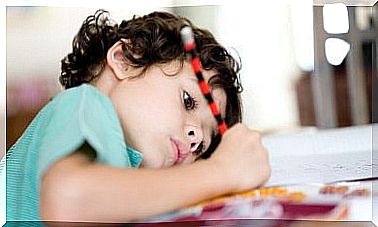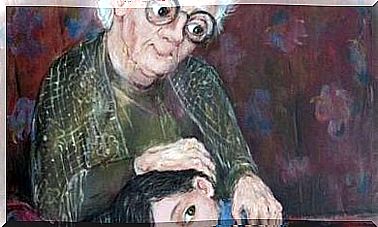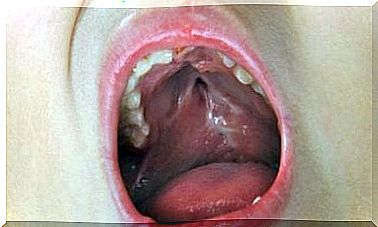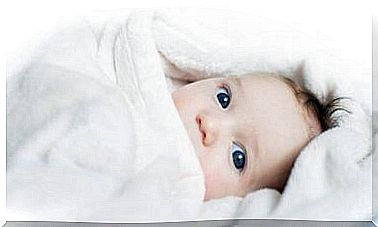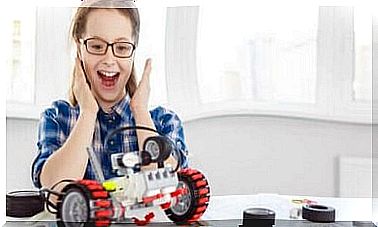Maternal Depression Also Affects Children

Depression during pregnancy and postpartum is a much more common ailment than many imagine. Unfortunately, many women continue to live with the problem for years, which eventually affects her children as well.
Many of the symptoms of depression are easy to confuse with the usual pregnancy-related and postpartum symptoms. Therefore, there is a high risk that a woman will not receive the correct diagnosis and the treatment she needs, which, of course, will only exacerbate the seriousness of the situation.
The consequences of depression do not only affect the sufferer, but the depression also affects his loved ones and especially his children. Because early childhood plays a key role in human development, the consequences of a child’s early experiences can still be seen in adulthood.
The effect of maternal depression on children
Children of depressed mothers already during pregnancy have a higher heart rate than normal. In addition, the risk of preterm birth and low birth weight has increased. Later, those babies are more passive and less sensitive to expressions and human-produced sounds. In addition, their stress hormone levels are higher than their peers.
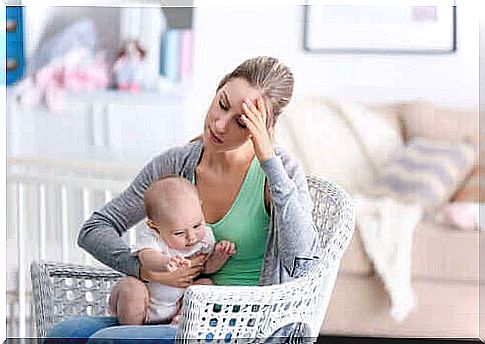
These children are also more vulnerable than usual to mood disorders and may have difficulty adjusting socially and academically. According to some sources, maternal depression also affects a child’s intelligence and health. A child whose mother is depressed also has a higher risk of developing depression during their lifetime.
However, we want to emphasize that not all children of depressed mothers have any problems like the ones described above. Thus, the relationship between maternal depression and the problems mentioned is not direct or unambiguous.
How does maternal depression affect children?
The quality of the bond between mother and child
Affection between mother and child is vital to a child’s well-being. However, it can be difficult for a depressed mother to understand the needs of the child correctly. Likewise, she may have difficulty interpreting the messages sent by the child.
In some cases, a mother may not meet her child’s needs or her reactions to those needs are inconsistent. In any case, this leads to an uncertain attachment, which has emotional consequences for the child.
Conflicts related to marriage
One important factor influencing a child is the relationship between his or her parents. The fact that one of the spouses suffers from depression forcibly affects the relationship in some way.
At worst, in such a case, positive communication between parents is almost completely absent and the relationship is dominated by accusations and quarrels. Witnessing conflicts between parents negatively affects the child in many areas.

Insufficient stimulation
A mother suffering from depression is likely to be less involved in raising her child than usual. Due to apathy and grief, she provides her child with fewer learning experiences and tools. At the same time, he devotes less time to sensual and intellectual stimulation.
In addition to this, a depressed mother introduces her child to a negative pattern of behavior that can affect the child’s future. The child grows up observing his mother’s behavior, which is dominated by grief, lack of interest, and exhaustion. The constant presence of such a model forcibly affects the child’s personality to some extent.
How to reduce the impact of maternal depression on the child?
To improve the mother’s well-being and avoid the problems the child is experiencing, the most important thing is to address the mother’s state of depression. It is important for the expectant and fresh mother to pay attention to any possible symptoms – especially after the baby is born – and to seek help with them.
In addition to seeking and receiving professional help, it is important to try to minimize the problems that a mother’s depression causes to her child. The child must be provided with appropriate stimulation and his needs must be adequately responded to. In addition to this, efforts must be made to provide him or her with a positive home and family environment that will help reduce the impact of parental depression.
